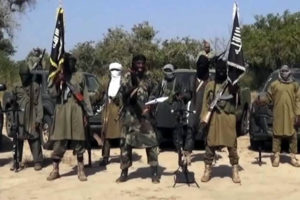
 UN Under-Secretary-General for Political Affairs Jeffrey Feltman warned that the fight against the terrorist Boko haram group is not over, although the coordinated efforts among the region’s Governments, including through the Multinational Joint Task Force (MNJTF) had “without question” yielded encouraging progress in the fight against the group.
UN Under-Secretary-General for Political Affairs Jeffrey Feltman warned that the fight against the terrorist Boko haram group is not over, although the coordinated efforts among the region’s Governments, including through the Multinational Joint Task Force (MNJTF) had “without question” yielded encouraging progress in the fight against the group.
Addressing the UN Security Council this week, the top UN political official conceded that the efforts of the Governments in Africa’s Lake Chad Basin have diminished Boko Haram’s combat capacity in the region, but the terrorist group has changed its tactics, increasing the use of suicide attacks.
“Unfortunately, the fight is far from over,” he said. The group had shifted its tactics in the wake of these efforts, and some 130 attacks attributed to Boko Haram in the four affected countries – Nigeria, followed by Cameroon, Niger and Chad ¬– in June and July resulted in 284 civilian fatalities, a significant increase compared to 146 attacks and 107 civilian fatalities in April and May.
At the political level, he said that the UN Special Representatives for Central and West Africa and the Sahel proposed a regional strategy to address the root causes of the Lake Chad Basin crisis. The strategy would be based on ownership by the countries and sub-regional organizations concerned: the Economic Community for Central African States (ECOWAS) and the Lake Chad Basin Commission.
On the development front, Feltman noted that the current crisis has “wreaked havoc” on basic infrastructure, as well as on government resources and services. Indeed, insecurity has sparked large-scale unemployment and left one million school-age children deprived of education. The substantial economic impact of the crisis has reached nearly $9 billion across northeast Nigeria alone.
“Poverty, weak state authority, insecurity and climate change explain this situation, with women and girls being the first victims,” he said, also noting that conflicts along with all this displacement has eroded, or even broken, intercommunity and intra-community ties. He warned that without robust efforts in peacebuilding, the reintegration of ex-combatants, including Boko Haram and vigilante groups, additional tensions could flare up.
Meanwhile, humanitarian needs are “staggering,” with 10.7 million people in the region requiring assistance, Feltman told the Security Council, noting that the bulk of burden is in Nigeria’s northeast. Yet, funding continues to be insufficient, as the appeal for $1.5 billion in 2017 for the region, is only funded at 40 per cent.
The UN official also raised concerns about human rights violations by Boko Haram, and also about violations committed in the context of counter-terrorism operations, stressing that perpetrators must be brought to justice.
